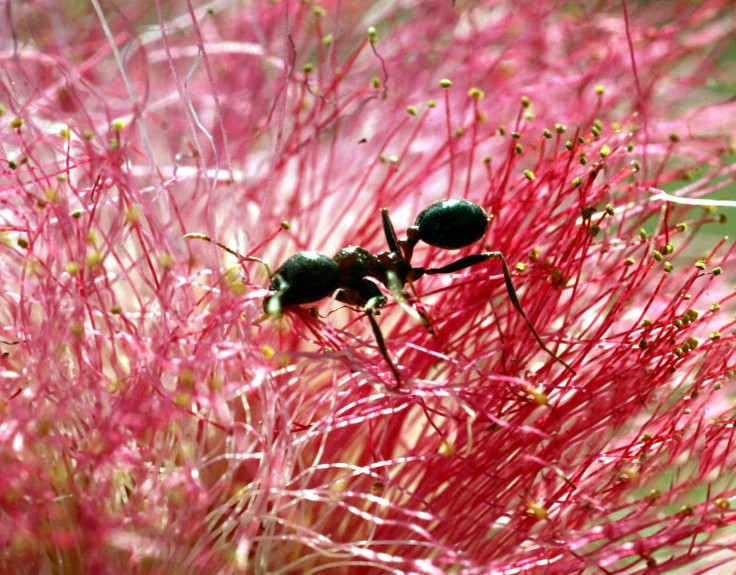Sanitary Practices Of Black Garden Acts Uncovered

A study called Nest Etiquette: Where Ants Go When Nature Calls looked into the sanitary practices of the black garden ants, the six-legged arthropods. The study found that the ants would take their own trash out, which qualified them to be toilet-trained. It was published in PLOS One, a review from the Public Library Of Science.
According to the Sydney Morning Herald, the ants were found to have a complex system of waste management. In matters related to both, personal as well as communal hygiene, the ants were found to be advanced. They would tidy areas that were specifically for fecal matter and also clean out their kitchen which was outside the nest for throwing out other waste items. The ants repurposed some of the waste materials and used it as construction material for building their homes.
The lead author of the study and a biologist from the University of Regensburg in Germany, Tomer Czaczkes, said that he was working with ants for a number of years which was when he took interest in their pooping patterns. The study authors said that sanitary behaviour was a field in biology that was under-studied. They believed that understanding how ants as well as other animals dealt with their fecal waste was crucial for studying how social species prevented disease outbreak and how they managed waste in crowded communities.
Czaczkes, during another study, noticed that there were many brown patches in the corners of the nests that he had built for the ants. As a part of the new study, Czaczkes and his team constructed 21 lab-grown nests for hundreds of the ants. They also spiked the ants' sugar water with dyes of blue and red.
In a span of two months, patches of bright colours were noticed in the nests. It signalled the locations of the toilet of every ant and often the toilets were in the corners of the nests and contained feces. Other waste materials like nest debris and food leftovers were deposited in "midden heaps."
Czaczkes said that if he was forced to choose, he would say that the inactive ants did not want to leave the nest because it would be dangerous. He added that instead, the ants worked to keep the tunnels of the colony clean. He also explained that one should be hesitant about associating the behaviour with human traits.
To report problems or to leave feedback about this article, e-mail: afza.kandrikar@gmail.com.





















